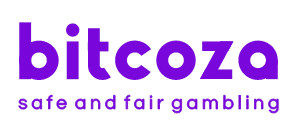The intersection of cryptocurrency and regulated gambling in the UK presents a complex regulatory puzzle that continues to challenge both operators and regulators. While digital currencies offer potential benefits like rapid transactions and reduced fees, UK licensed casinos face significant obstacles in accepting crypto payments. The stringent requirements of the Gambling Act 2005, combined with evolving financial regulations and consumer protection mandates, create a challenging environment for cryptocurrency integration. Understanding these barriers reveals deeper insights into the future of digital payments in Britain’s regulated gambling sector and raises important questions about innovation versus compliance.
Key Takeaways
- UK Gambling Act requires strict KYC checks and financial transparency, which conflicts with cryptocurrency’s anonymous nature.
- Licensed operators must maintain clear audit trails for transactions, making cryptocurrency’s decentralized structure problematic for compliance.
- Anti-Money Laundering regulations require operators to verify player identities and track fund sources, which is difficult with crypto transactions.
- The UKGC prioritizes consumer protection through regulated payment methods, while crypto’s volatility poses significant risks to players.
- Most UK players (78%) prefer traditional payment methods like debit cards, showing limited market demand for cryptocurrency integration.
Regulatory Framework and Legal Barriers
The UK’s stringent gambling regulations present significant obstacles for the integration of cryptocurrency payments in licensed casinos. Under the Gambling Act of 2005 and subsequent regulatory updates, all licensed operators must maintain strict financial transparency and consumer protection measures.
The current legal framework creates two primary barriers for cryptocurrency adoption. First, the UK Gambling Commission (UKGC) requires casinos to conduct thorough Know Your Customer (KYC) checks, which is incompatible with the anonymous nature of cryptocurrency transactions. Second, cryptocurrencies remain unregulated within UK gambling laws, placing them in a legal gray area. Regular reviews of these compliance processes are mandatory for all online gambling companies.
Legal implications of cryptocurrency integration extend beyond basic compliance issues:
- Licensed operators must maintain clear audit trails for all financial transactions
- Anti-money laundering (AML) regulations require traceable payment methods
- Consumer protection measures demand stable, regulated payment options
- Current legislation does not recognize cryptocurrencies as valid payment methods
While discussions within regulatory bodies suggest potential future considerations for crypto gambling, the UKGC maintains a cautious stance. Any changes would require extensive updates to existing regulations, ensuring maintained standards for consumer protection and financial transparency.
Anti-Money Laundering Compliance Issues
Significant anti-money laundering compliance challenges arise when integrating cryptocurrency payments into UK licensed casino operations. The fundamental anonymity of cryptocurrencies conflicts directly with the UKGC’s strict AML requirements, creating substantial traceability challenges for operators.
The UKGC mandates that licensed casinos implement robust AML controls under Licence Condition 12.1.1. Nevertheless, cryptocurrencies’ decentralized nature makes it nearly impossible for operators to verify player identities and track the source of funds effectively. The lack of traceability concerns make cryptocurrencies particularly challenging for regulatory oversight. The anonymity risks associated with crypto transactions facilitate potential money laundering through techniques like smurfing.
Operators face serious consequences for non-compliance with AML regulations, including enforcement actions and potential license revocation. The UKGC emphasizes the importance of ongoing review and adaptation of AML controls, making cryptocurrency integration particularly problematic.
While future technological advancements in blockchain and KYC tools may eventually address these concerns, current AML compliance issues remain a significant barrier. The acceptance of crypto payments by UK licensed casinos will likely depend on developing reliable methods to determine fund sources while maintaining regulatory compliance.
Consumer Protection Concerns
Integrating cryptocurrency payments into UK licensed casinos raises substantial consumer protection concerns that extend beyond traditional gambling safeguards. The volatility of cryptocurrencies presents significant financial risks for players, with price fluctuations potentially affecting the value of their winnings and deposits.
A core challenge lies in implementing effective risk management tools when dealing with crypto transactions. The pseudonymous nature of cryptocurrencies complicates mandatory Know Your Customer checks and anti-fraud measures that licensed casinos must maintain. Furthermore, player education becomes essential as many users may not fully understand the tax implications of cryptocurrency gambling winnings. Without proper UKGC approval, operators face severe penalties for accepting cryptocurrency payments.
The lack of regulatory oversight in cryptocurrency transactions poses further challenges. Players using crypto may have limited recourse in cases of fraud because of the decentralized nature of these currencies. Licensed casinos must provide secure payment gateways and robust security measures to protect player funds and personal information, which becomes more complex with cryptocurrency integration.
While technological advancements may eventually address some of these concerns, current consumer protection regulations require strict compliance that cryptocurrency payments cannot yet fully satisfy within the UK gambling framework.
Market Demand Analysis
Market research indicates that 78% of UK casino players prefer traditional debit cards for their gambling transactions, with e-wallets ranking as the second most popular payment method. The current adoption rate for cryptocurrency payments in UK licensed casinos remains remarkably low, reflecting both regulatory restrictions and limited consumer interest. This payment preference aligns with the UK gambling market’s emphasis on established financial systems that offer strong consumer protections and comply with UKGC regulations. A key factor in this hesitancy is the strict player protections imposed by the UK Gambling Commission, which requires detailed verification processes for all financial transactions.
Current Payment Method Preferences
The dominance of traditional payment methods in UK licensed casinos reflects a deeply established consumer trust in familiar financial instruments. With 78% of UK players preferring debit cards, the market clearly demonstrates a strong inclination toward conventional payment solutions that prioritize payment efficiency and improved user experience.
The current payment environment in UK casinos is characterized by several well-established methods that offer robust security features and regulatory compliance:
- Debit cards remain the most widely accepted option, providing universal accessibility and immediate transaction processing
- E-wallets like PayPal and Skrill offer improved privacy and faster withdrawal times
- Alternative methods such as Apple Pay provide additional convenience with built-in security features
- Traditional banking options maintain strong appeal because of their proven track record and reliability
While international markets may show growing interest in cryptocurrency adoption, UK players consistently favor traditional payment methods that align with UKGC regulations. The widespread adoption of Pay by Phone services allows players to charge small deposits directly to their phone bills, adding another layer of convenience to traditional payment options. This preference stems from a combination of factors, including stringent regulatory requirements, established banking relationships, and the thorough security measures offered by conventional payment solutions. The market’s focus on AML/KYC compliance further reinforces the dominance of traditional payment methods in the UK gambling sector.
Cryptocurrency Adoption Rate Analysis
In lieu of regulatory restrictions in UK-licensed casinos, cryptocurrency adoption in the global online gambling market demonstrates remarkable growth, with the sector expanding from $50 million in 2019 to $250 million in 2024 at a 38% CAGR.
Analysis of user behavior and demographic trends reveals significant market momentum, with cryptocurrency transactions now representing 30% of all wagers, up from 20% in 2022. The market is projected to reach $400 million by 2028, indicating sustained growth potential. The total value of crypto bets has shown explosive growth, reaching 6.3 billion dollars in 2023.
| Key Metric | Current Value |
|---|---|
| Core Age Range | 25-44 years |
| Gender Split | 70% male, 30% female |
| Education Level | 60% bachelor’s or higher |
| Mobile Usage | 65% of total bets |
| Crypto Transaction Share | 30% of all wagers |
The data indicates a sophisticated user base, mainly male and well-educated, with strong mobile engagement. Market projections suggest cryptocurrency gambling could represent 15% of the global online gambling market by 2026, in spite of current regulatory challenges in markets like the UK. This growth is supported by technological advancements, with blockchain technology reducing fraud by 60% compared to traditional online casinos.
Market Research Data Insights
Recent market research data reveals a stark contrast between global cryptocurrency adoption trends and UK player preferences in online gambling. Analysis shows that 78% of UK players consistently choose traditional payment methods, particularly debit cards, while cryptocurrency remains a marginal choice for transactions.
The research identifies several key factors influencing market demand for crypto payments in UK licensed casinos:
- Strong regulatory constraints and AML policies create significant barriers for emerging technologies in the payment space
- Traditional payment methods maintain dominance owing to established trust and familiarity among UK players
- International competition from crypto-friendly casinos presents untapped market opportunities for UK operators
- Technological advancements in blockchain could reshape future payment preferences
Current market dynamics suggest that while global cryptocurrency adoption continues to rise, UK casino players remain hesitant to accept these payment methods. This trend is primarily driven by regulatory requirements and established consumer behavior patterns. Major crypto casinos like Bitstarz and BC.Game have demonstrated significant player demand outside the UK market. Nonetheless, the environment could shift as improvements in blockchain technology address regulatory concerns and international competition intensifies. The potential for future regulatory evolution, combined with advancing payment technologies, may create new opportunities for UK licensed operators to reconsider their stance on cryptocurrency acceptance.
Payment Security and Risks
The fundamental volatility of cryptocurrencies presents substantial financial stability risks for both UK licensed casinos and their players. Transaction recovery becomes nearly impossible with crypto payments because of their irreversible nature, unlike traditional payment methods that offer chargeback protection. These security challenges are further complicated by the lack of standard financial safeguards, making crypto transactions particularly vulnerable to errors and fraudulent activities. The absence of consumer protection measures makes it especially difficult for players to seek recourse when issues arise with cryptocurrency gambling transactions.
Volatility Threatens Financial Stability
Volatility stands as one of the most significant threats to financial stability when considering cryptocurrency payments in UK licensed casinos. The extreme price fluctuations and lack of inherent value create substantial volatility impacts that could severely disrupt casino operations and payment processing. Market instability caused by crypto’s speculative nature poses risks not only to operators but as well to players and the broader financial system. Historical data shows cryptocurrencies exhibit four times more observations than traditional stocks due to their 24/7 trading nature.
The interconnectedness between crypto markets and traditional financial sectors raises serious concerns about systemic risks. Even stablecoins, designed to maintain stable values, face potential runs and deviations from their pegs. These challenges are further complicated by regulatory gaps and data limitations in the crypto ecosystem.
Key volatility concerns include:
- Sharp price swings that can lead to significant losses for both casinos and players
- Amplified risks due to borrowing and lending practices in crypto markets
- Increased potential for market disruptions affecting payment processing
- Higher historical volatility compared to traditional payment methods and assets
The UK Gambling Commission’s cautious approach reflects these stability concerns, particularly given their responsibility to maintain secure and reliable payment systems within the regulated gambling sector.
Transaction Recovery Challenges
Recovering lost or stolen cryptocurrency transactions in UK licensed casinos presents formidable challenges owing to the decentralized nature of digital assets and lack of traditional financial safeguards. The absence of a central authority and the anonymous nature of crypto transactions make transaction tracing particularly complex, especially across international borders. With inadequate victim support networks available, affected users often struggle to find proper guidance and assistance for recovery.
The technical architecture of blockchain technology poses significant obstacles for asset recovery efforts. Once executed, transactions become permanent and irreversible, making it nearly impossible to rectify fraudulent activities. The speed at which cryptocurrency can be transferred between wallets further complicates recovery attempts, as funds can quickly move through multiple addresses.
Regulatory constraints add another layer of complexity to the recovery process. The lack of standardized international regulations and jurisdictional barriers makes enforcing legal judgments challenging. Furthermore, the absence of traditional intermediaries means there are no established protocols for transaction disputes or reversals. UK licensed casinos must likewise navigate strict AML and KYC requirements, which become more difficult to enforce with cryptocurrency payments. These challenges, combined with cybersecurity threats and the fundamental complexity of blockchain technology, create substantial barriers to effective transaction recovery.
UK Player Payment Preferences
Understanding UK players’ payment preferences reveals a clear shift towards digital solutions, with debit cards maintaining dominance at 78% of all transactions, followed closely by e-wallet services like PayPal and Skrill.
Current payment method trends indicate that UK players prioritize security, speed, and convenience in their gambling transactions. While traditional payment methods remain relevant, the market shows a strong inclination towards digital payment solutions that align with modern player demographics.
Key factors driving digital payment adoption include:
- Improved security features and fraud protection measures
- Faster processing times for deposits and withdrawals
- Greater privacy and discretion in financial transactions
- Enhanced control over gambling expenditure
The limited demand for cryptocurrency payments among UK players reflects their satisfaction with existing payment options. E-wallets and mobile payment solutions like Boku provide the efficiency and convenience that players seek, while maintaining compliance with UKGC regulations. This preference for established digital payment methods, combined with robust consumer protection measures, suggests that UK players prioritize reliable, regulated payment options over emerging alternatives like cryptocurrency. The recent fintech collaborations with online casinos have further strengthened the adoption of secure digital payment solutions.
Future of Crypto Gambling in the UK
While UK players currently favor traditional digital payment methods, the broader global gambling environment points to a transformative future for cryptocurrency integration in online casinos. Market predictions indicate substantial growth, with the global online gambling market expected to reach $127.3 billion by 2027, significantly driven by crypto gambling platforms. The integration of mobile gaming technology since 2005 has demonstrated the industry’s ability to adapt to new technological frontiers.
Emerging trends suggest that technological advancements in blockchain and smart contracts are reshaping the industry’s environment. These innovations provide improved security, faster transactions, and better transparency – features that appeal to both operators and players. The development of sophisticated KYC tools and cryptographic algorithms is addressing vital regulatory concerns.
However, the future of crypto gambling in the UK depends heavily on regulatory evolution. While the UKGC maintains strict controls, increasing mainstream acceptance of cryptocurrencies and continued technological improvements could influence future policy decisions. The pressure of global market demand, combined with improved security measures and transparent blockchain solutions, may eventually lead to a regulatory framework that accommodates cryptocurrency payments while maintaining player protection standards.
The path forward likely involves finding balance between innovation and regulation, potentially opening new opportunities in the UK gambling market.



